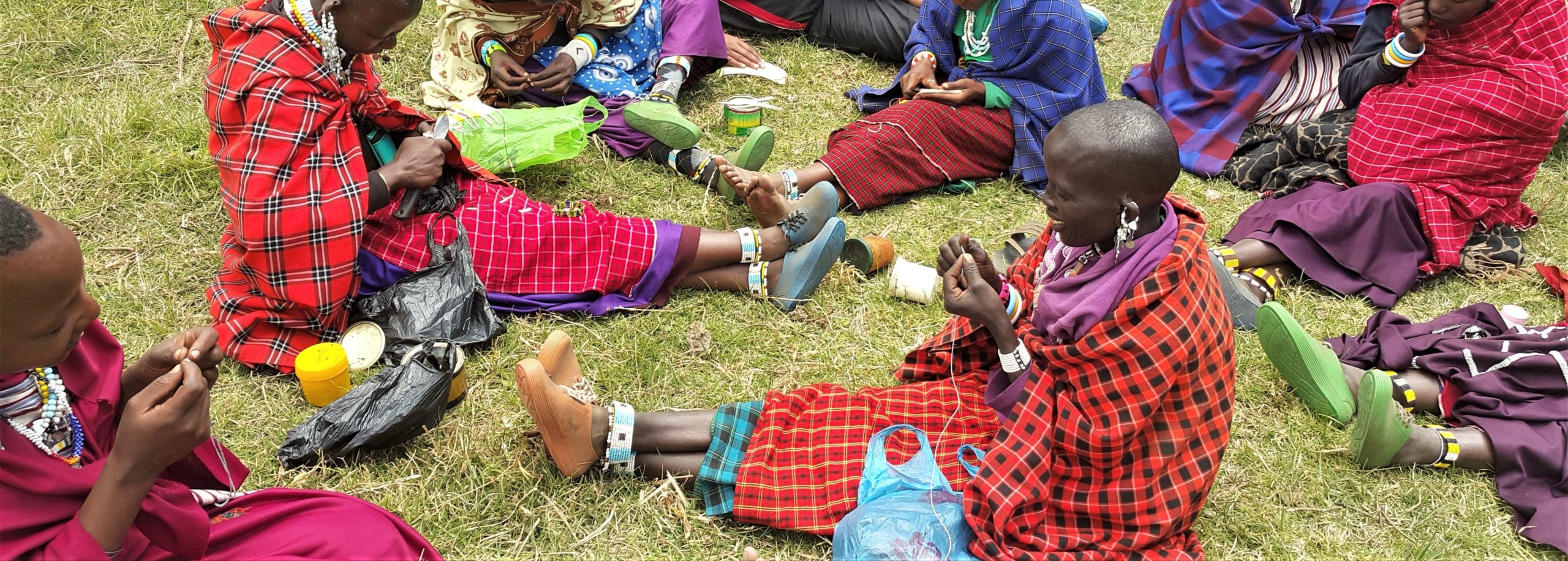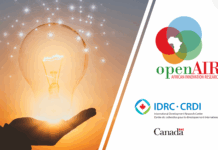By Meika Ellis, Alyssa Gaffen, and Jeremy de Beer
This is part two of a two part series. For part one, please click here.
The Open AIR network seeks to bring, among other things, a gendered perspective to our research. We are exploring the nexus between feminist literature, intellectual property, information technology, and innovation; connecting these approaches into the network’s future priorities.
IP and Feminism
Strict intellectual property laws are often justified with the idea that a monopoly over one’s work – and the royalty payments that follow – provide an incentive to create and innovate. However, as Ann Bartow notes, trades like culinary arts and fashion – which are traditionally more female activities – are excluded from intellectual property (IP) protection:
“clothing designs and cooking recipes do not generally receive copyright protection, and yet we do not go naked and hungry, nor do we typically observe or experience vacuums of creativity with respect to fashion or food.” (p. 557)
To obtain and actively enforce an IP right, a woman must overcome high barriers to demonstrate that her work is valuable (Bartow, pp. 561-562). These barriers range from glass ceilings in the workplace, as women continue to struggle to achieve decision-making positions, to educational inequality, as girls are taught to play it safe rather than strongly advocate for their position.
Apart from these outcomes, the overarching concern is that IP and innovation frameworks are written from a male perspective. That is, these discourses reflect traditionally Western male values such as individualism, commercialisation, and exclusivity. Women must conform to these tenants to succeed. Bartow explains that:
“[a] classic double bind emerges. Female authors risk accusations of selfishness and greed if they violate perceived gender-linked social norms of sharing, caring, and selfless collaboration because they seek to procure and enforce individual authorship rights and attributive credit. However, women who adhere to collaborative norms and decline to rigorously anoint themselves “sole authors” or to hold and enforce the full panoply of copyright based exclusive rights forgo attribution, income, and control.” (p. 578)
Need for Research
While it is easy to point out these problems, it is difficult to recommend solutions. The discourse on gender, IP, and innovation still suffers from two important challenges:
- a lack of gender-segregated statistics to compare the circumstances of men and women; and
- a need for intersectional analyses that address race, class, and other forms of marginalisation that accentuate gaps between the dominant discourse and a person’s interests.
The lack of recognition and compensation afforded to black women blues artists in the 1920s is but one example of the hundreds that demonstrate how everyone experiences marginalisation differently, and no one can claim to speak with one “feminist” voice.
Gender, ICT, and Africa
Therefore, among the gender and IP topics discussed above, we must also highlight the important work being done in the overlapping fields of gender, innovation, and development. ICT (information, communication ,and technology), for example, has been identified as a “gender-imbalanced field”: an imbalance that developing countries feel as well. The “information society” (i.e. the Internet), however, has become a social phenomenon where different genders, races, and classes interact differently with ICTs on a daily basis.
One seminal work on ICT, women, and other marginalized groups in Africa is a book by Buskens and Webb at the Grace Network. These authors support research that enable social transformation through ICTs. The “ICT revolution” is helping to empower women in Africa, but their experiences are not being heard. That is, research on this topic is often designed for rather than with these women.
“… everyone experiences marginalisation differently, and no one can claim to speak with one ‘feminist’ voice.”
No person’s experience is the same. Involving research subjects in the design process is empowering; by including women, they can direct which research outcomes are beneficial to them. Innovation and technology has the potential to transform gender power relations. Research incorporating a gendered perspective is a step toward empowering women in Africa and around the world.
WIPO and Gender
The World Intellectual Property Organization (WIPO), a specialized agency of the United Nations, has begun collecting and assessing relevant data, a first step toward promoting gender equality. According to the this data, while we have seen an increase in the number of women inventors, women still make up less than a third of all inventors named on patents.
Number of women #inventors in international #patent filings is increasing, but gender gap persists: https://t.co/xIWIizs53j. #IPSDM pic.twitter.com/3J4wRpSIpd
— WIPO (@WIPO) November 14, 2016
So, do women invent less? Or just patent less? The statistics above represent the number of women acknowledged for contributing to patented inventions. The actual number of women inventors is likely misrepresented because the type of metrics being used internationally lag behind the reality of innovation and women in innovation. What systemic barriers impede women inventors from patenting inventions? Is the problem with patents? Inventors? Or the intellectual property and innovation system?
Open AIR’s Research
Going forward, Open AIR will seek to better integrate a gendered perspective in both the inputs and outputs of our research. One of Open AIR’s core objectives is to create new policy frameworks that more equitably distribute the benefits of innovation throughout society. Therefore, some of our case studies look at open and collaborative forms of innovation and associated discourses. We know that a gendered perspective will enrich their execution and outcomes.
Following Professor Craig’s presentation at uOttawa (see our earlier blog post on it here) and the literature in this field, we are inspired to dig into this topic and are actively seeking researchers and resources to engage with topics such as how feminist legal theory and open access approaches to innovation overlap in their tenets and how they can support one another.
In a week where we remember the tragic events at Polytechnique, we are inspired to learn from history and continue to have women be truly part of the legal, political, and economic landscape.
Today, we mourn the 14 who were murdered at l’École Polytechnique de Montréal simply because they were women: https://t.co/34a5DqQ39h
— Justin Trudeau (@JustinTrudeau) December 6, 2016
If you’re interested in this work, we hope you’ll reach out and join us.










